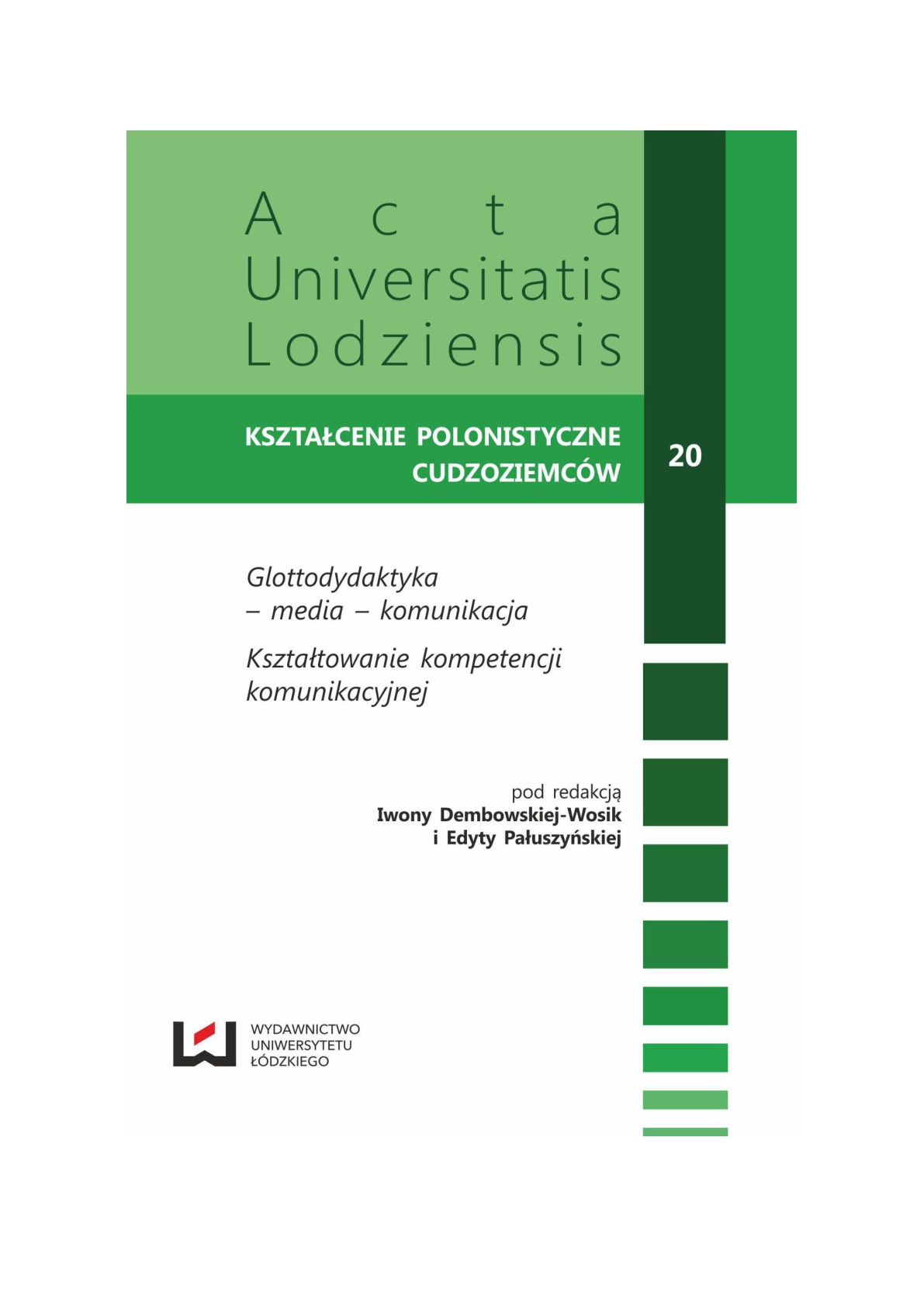STRUKTURY REFERUJĄCE Z WYRAZAMI PAN / PANI W POLSKOJĘZYCZNEJ PRASIE NA UKRAINIE: GRZECZNOŚĆ CZY NIEGRZECZNOŚĆ?
REFERENTIAL STRUCTURES WITH WORDS PAN / PANI IN THE POLISH LANGUAGE PRESS IN UKRAINE: POLITENESS OR IMPOLITENESS?
Author(s): Ałła KrawczukSubject(s): Media studies, Theoretical Linguistics, Western Slavic Languages
Published by: Wydawnictwo Uniwersytetu Łódzkiego
Keywords: linguistic politeness; the Polish language in Ukraine; the press Polish language; honorification; deprecation; communicative misunderstanding;
Summary/Abstract: The author of the article analyses the referential structures (which are not used as forms of address), including words pan or pani as (from the theoretical point of view) analytical forms of noun honorification (as pan prezes, pan [Zbigniew] Gołąb). Different structural variants of these constructions are characteristic of information texts in the Polish language press, which comes out nowadays in Ukraine, for example: Ambasador RP na Ukrainie pan Jacek Kluczkowski; Pan Mieczysław Maciejak, przewodniczący Stowarzyszenia; Pan Konsul Generalny Wojciech Gałązka; Pan Janik – Konsul Generalny RP w Łucku; Pan Ambasador; Pan Tomasz Janik; Pani Tymoszenko; Pani Julia. In the Polish narrative texts words pan / pani in similar structures are unnecessary and sometimes even occur in so-called schemes of title depriving in the meaning of deprecation (for example: Nowy minister zdrowia, pan Arłukowicz, wie, jak uzdrowić [...]). The research shows that in the Polish community press discourse, which is distinct from the Polish nationwide discourse, referential constructions with words pan / pani are used in other functions: heightening of politeness manifested in the increased respect for the mentioned person; introduction of peculiar atmosphere of “polishness” to the communication area; creation of the illusion of the presence of the designatum in the communicative situation causing specific hybridization of the press genre. However, the precise definition of the functions of the structures in the Polish community press is not always possible because of the frequent inconsistencies in the “local overpoliteness” expression. The relevance of these specific polite structures may also be questionable if in the role of the recipient of a message is native Polish language speaker from Poland. Therefore, the “clash” of Polish nationwide and minority press discourses as regards the analyzed aspect of the linguistic etiquette may lead communicative misunderstanding, which are unintended by the sender, who represents the Polish community in Ukraine.
Journal: Acta Universitatis Lodziensis. Kształcenie Polonistyczne Cudzoziemców
- Issue Year: 2013
- Issue No: 20
- Page Range: 119-130
- Page Count: 12
- Language: Polish

